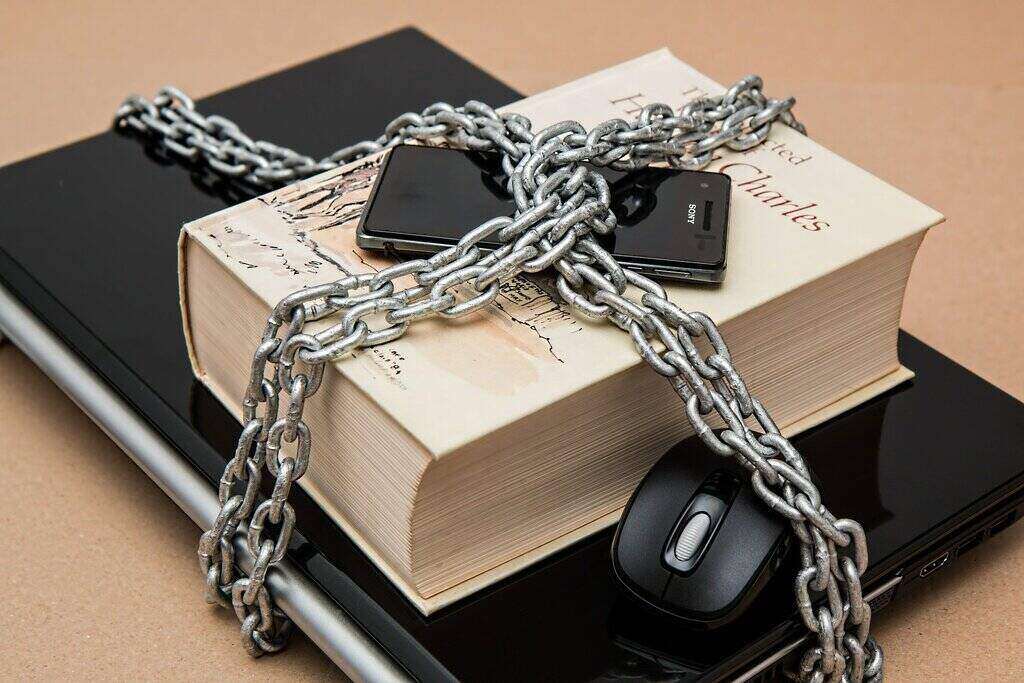Headlines
Censorship Laws Lead News Agencies to Stop Broadcasting in Russia

Russia’s parliament passed a censorship law at the behest of Vladimir Putin. The law, signed by the Russian president on Friday, bans so-called “fake news” about the country’s attack on Ukraine; it bars journalists from using the word “invasion.” Violators of the newest censorship law against those reporting accurate stories could be sentenced to up to 15 years in prison, reports the Committee to Protect Journalists.
The Kremlin is dictating what can and cannot be written about the war; they prescribed the preferred terminology for reporters. Instead, the invasion taking place in Ukraine is to be called a “special military operation.” Furthermore, the Russian government has the final say about the definition of what entails “fake news,” which could fluctuate based on Putin’s assessment of how the news affects the mood of those living in the Russian Federation.

Courtesy of Cathy Milne-Ware (Flickr PDM)
Western News Agencies Respond to Censorship
Several Western news agencies report they have temporarily halted their activities in Russia while assessing the impact of Putin’s new censorship policy; ABC, CBS, Bloomberg, The Washington Post, Reuters, The Wall Street Journal, and others citing concerns about their reporting teams. “They will continue to assess the situation,” reports CNN.
Bloomberg’s editor-in-chief, John Micklethwait, says the censorship law “seems designed to turn any independent reporter into a criminal purely by association.” A situation that makes it impossible to continue any semblance of routine journalism inside Russia, he added.
Meanwhile, CNN virtually cut off its signal to Russia, declaring the network will stop reporting in the country until further notice.

Courtesy of Dimitris Vetsikas (Pixabay CC0)
Britain’s BBC released the notification that they are suspending coverage from Russia after government watchdogs there barred access to the network and several other foreign news agencies.
Additionally, Russia blocked access to Voice of America, Radio Free Europe/Radio Liberty, and Deutsche Welle.
Russian Independent and Social Media
Russia’s homegrown media is bearing the pressure to close shop or comply. The editor-in-chief of one of the country’s most popular outlets, Meduza, said they had been expecting to be shut down by Putin’s watchdogs since the war with Ukraine began. Ivan Kolpakov, whose news outlet is based in Latvia, initiated “an urgent evacuation” of his Russian staff members.
Two more of Russia’s most prominent media outlets, Moscow’s Echo and TV Rain were banned.

Courtesy of Herman Van Rompuy (Flickr CC0)
Journalists are fleeing Russia resulting in the silencing of news sources that offered information to the public that differed from the Kremlin’s official storyline on domestic and world affairs. State-owned media only releases the news Putin wants the world to hear.
The World Press Freedom Index recently ranked Russia 150th out of 180 nations. Moreover, Moscow has often restricted independent news outlets during military conflict. Still, the censorship of so-called fake news is unprecedented, according to Dr. Gulnoza Said, the head of Europe and Central Asia Program at the Committee to Protect Journalists.
The Russian communications regulator, Roskomnadzor, blocked Facebook for reportedly discriminating against the country’s state-backed channels, like RT and the RIA news agency. Facebook has supposedly discriminated against Russia 26 times since 2020. In addition, Twitter was banned by Russia, according to Interfax and Tass news agencies.
In response to Putin’s growing censorship demands, major technology companies like Alphabet Inc.’s Google have paused advertising on its platforms.
Written by Cathy Milne-Ware
Sources:
Committee to Protect Journalists: Proposed Russian legislation threatens 15 years in prison for ‘fake’ information about Ukraine invasion
CNN: CNN, BBC, and others suspend broadcasting from Russia after Putin signs law limiting press; by Oliver Darcy
European Union External Action: Russia: Statement by High Representative Josep Borrell on media censorship and crackdown on peaceful anti-war protests
The New York Times: Russia’s independent media, long under siege, teeters under new Putin crackdown; by Elahe Izadi and Sarah Ellison
The Media Manipulation Casebook: TRACKING SOCIAL MEDIA TAKEDOWNS AND CONTENT MODERATION DURING THE 2022 RUSSIAN INVASION OF UKRAINE; by April Glaser and Jazilah Salam
Featured and Top Image Courtesy of Steve Buissinne’s Pixabay Page – Creative Commons License
First Inset Image Courtesy of Cathy Milne-Ware’s Flickr Page – Public Domain License
Second Inset Image Courtesy of Dimitris Vetsikas’ Pixabay Page – Creative Commons License
Third Inset Image Courtesy of Herman Van Rompuy’s Flickr Page – Creative Commons License

Pingback: Lies Are Catching Up With Republicans - Guardian Liberty Voice
Pingback: Lies Are Catching Up With Republicans - News